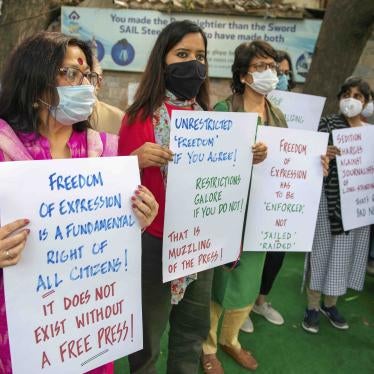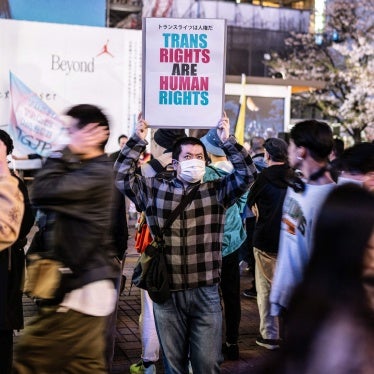In Fiji, one must choose between being an advocate for media freedom and a journalist.
The chairman of the Media Industry Development Authority (MIDA), the government body tasked with regulating the media, advised a prominent local journalist in March to make exactly that distinction in his work—providing a revealing insight on the position of media freedom in the island-nation. In Fiji, the practice of free journalism remains limited by government retribution against those who are perceived as critical of the ruling administration.
Parliamentary elections, scheduled for September, should be Fiji’s first democratic elections in nearly eight years. The country has been without an elected government since Rear Admiral Voreqe Bainimarama seized power in a December 2006 military coup. Bainimarama’s government arrested, arbitrarily detained, and imposed hefty fines against journalists. Foreign journalists, including Sean Dorney of the Australian Broadcasting Corporation, who have reported on topics that the government perceived as controversial, have been summarily deported.
As elections near, allegations of government intimidation and interference with the media have resurfaced. Newsrooms no longer hosts censors as in the immediate post-coup period, specifically after the Public Emergency Regulations (an act that gave authorities absolute control in determining legitimate journalism) was lifted in 2012.
But the draconian 2010 Media Decree remains in place. The decree imposes severe penalties on any publication that MIDA deems threatening to “public interest or order.” Journalists found guilty of violating the vaguely worded decree can be jailed for up to two years and fined up to 100,000 Fijian dollars. The decree also severely restricts foreign media ownership in Fiji. In addition, the government also issued the Television Amendment Decree of 2012, demanding that all broadcasting comply with the provisions of the Media Decree. It threatened to discontinue Fiji TV’s license if it broadcasted anything perceived of as “anti-government.”
And where official censorship may not occur as blatantly as in the past, this last month alone has seen multiple cases of government interference and intimidation of the media. On June 25, MIDA called for the investigation of two journalism academics from the University of the South Pacific (USP) who commented on the military’s use of torture and on the state of media freedom in Fiji. The authority lambasted the pair, claiming the statements were both unsubstantiated and could cause irreparable damage to Fiji.
In another incident in late June, MIDA denied accreditation to a prominent Fiji-based journalist, effectively barring his attendance of the Pacific Islands Development Forum in Nadi. —an act that was condemned by regional media rights groups for its lack of transparency and due process.
Critics have alleged that there is increasing pressure on local media to provide strictly pro-government coverage. With past contempt cases against local news outlets including the Fiji Times—in 2013 a Fiji High Court verdict imposed on it a fine of 300,000 Fijian Dollars for republishing an article questioning judicial freedom in Fiji—it is likely that publishers will continue to verge on the side of caution. The repercussions from acting to the contrary are too severe.
In a paradoxical move this past month, the government sponsored a series of voter awareness and media training sessions. But without a critical basis for unbiased reporting and open debate, these programs are rendered meaningless. When major news sources are deterred from publishing anti-government views, it creates an unbalanced playing field that will give pro-government parties an advantage in the upcoming polls.
Authorities have met all allegations of censorship and harassment with denial. MIDA chairman Ashwin Raj described the USP Journalism academic’s statements as “unsubstantiated and anachronistic,” maintaining that journalists need to stay clear of debating between legality and legitimacy, and contending that journalists continue to hold a “plurality of voices.” However, as evidenced by the authority’s response and subsequent call for investigation, it is clear that certain voices are excluded from that same plurality.
If the government is committed to a democratic transition, it should cease the harassment of journalists ahead of the elections. It is imperative that authorities lift restrictions on the media, including both the 2012 Public Order Amendment Decree and the 2010 Media Decree.
Shaivalini Parmar is a senior associate with the Asia division of Human Rights Watch. Follow her on Twitter @ShaivaliniP







